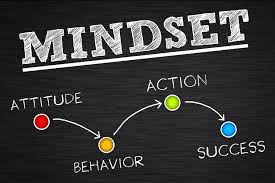Language can be extremely impactful
Whether you’re trying to make a good first impression, coordinating day-to-day activities with colleagues, or maintaining your professional network, language counts. Our vocabulary is the combined product of our distinct personalities, culture, environment, and interactions with others. According to Stanford Professor, Bernard Roth, the way we speak not only affects how others perceive you; it also has the potential to shape your behavior. In his book, The Achievement Habit, Roth suggests several linguistic tweaks that can contribute to your success. See below for two examples of changes to your vocabulary you can make today:
Swap ‘but’ for ‘and’
According to Roth, “when you use the word but, you create a conflict (and sometimes a reason) for yourself that does not really exist.” For example, you may be tempted to say, “I want to work for Nike, but I don’t have any contacts who work there.” By swapping ‘but’ for ‘and’ (I want to work for Nike, and I don’t have any contacts that work there) you eliminate the obstacle and identify the task necessary to attain your goal.
Swap ‘have to’ for ‘want to’
Roth states, “this exercise is very effective in getting people to realize that what they do in their lives — even the things they find unpleasant — are in fact what they have chosen.” By swapping ‘have to’ with ‘want to” we remind ourselves of the Why we have chosen to do what we are doing, which can refuel your driving motivation for accomplishing short-term objectives to reach your long-term goal. For example, those who aspire to coach at the college level have likely learned they need to complete an undergraduate degree. Rather than saying, “I have to pass this math class to earn my bachelor’s degree,” try reminding yourself of your long-term goal, “I want to pass this math class to get into coaching.” When employing strategies such as these, you challenge your automatic thinking and may realize that a problem isn’t as unsolvable as it seems. Where have to triggers the belief that others or a system dictate what you need to do to be successful, the phrase “want to” puts you back in the driver’s seat as you actively navigate your path to success.
For more tips on how to communicate effectively, review this list of 15-Words You Need to Eliminate From Your Vocabulary, and 8-Buzz Words to Banish From Your Work Vocabulary. In addition, be sure to practice your new vocabulary in both written and verbal communications with your AthLife Advisor.



